Introducing Injustice Roundup: My Weekly Roundup of Stories on Abusive Police Officers, Prison Guards, and Prosecutors
Before the campaign and election of Donald Trump, incidents of police brutality and police misconduct were regularly top news stories throughout the country. The Black Lives Matter Movement forced the nation to know the names and faces and stories of victims. When I speak on college campuses from coast to coast, I can quickly say […]
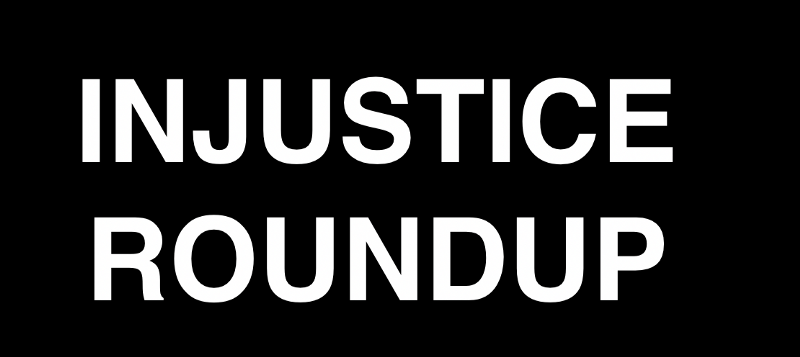
Before the campaign and election of Donald Trump, incidents of police brutality and police misconduct were regularly top news stories throughout the country. The Black Lives Matter Movement forced the nation to know the names and faces and stories of victims. When I speak on college campuses from coast to coast, I can quickly say the names Eric Garner, Mike Brown, Tamir Rice, Sandra Bland, Freddie Gray, or Philando Castile and it seems every person in the room will know who I’m talking about.
That is history. 2017 is substantively different. Don’t get me wrong — police brutality and misconduct roar ahead, but gone are the days of everyday Americans knowing the stories. Gone are the days of every single person in an auditorium internalizing the injustice and taking stories in far away towns so personally that they march and protest in their own cities because of it.
2017 is on pace to be one of the deadliest years ever measured for police brutality in America. As of this writing, at least 907 people have been killed by police so far this year, but it’s a struggle now to find people in the crowd who can name even one of those 907 people. That’s a staggering shift in the wrong direction. To hold local officials accountable for overzealous and inequitable policing, we must name these injustices and specifically hold to account the police chiefs, mayors, and elected prosecutors who refuse to reign-in unruly officers.
Here’s the thing, though: It isn’t just police brutality that deserves our attention. Jail and prison guards routinely brutalize people who are imprisoned; and yet, wardens, sheriffs, and prosecutors frequently fail to hold these guards accountable. My colleague, Carimah Townes, recently wroteabout Terrill Thomas, who died in a Milwaukee jail under Sheriff David Clarke’s watch from “profound dehydration” after guards threw him into a solitary confinement cell and turned off the water in the cell’s sink. Back in May, Milwaukee’s prosecutor, John Chisholm, said he had not decided whether his office would pursue charges in the case. It appears that decision is still pending.
Prosecutors, too, do unconscionable things every day to our poorest and more vulnerable neighbors — recommending bail amounts that ensure people stay locked-up for months or years without a conviction even for people who pose no significant safety risk; charging poor people an entrance fee into diversion programs they can’t afford; and failing to turn over evidence that points to a person’s innocence, to name a few.
To do my part, I’m starting this (at least once) weekly column — Injustice Roundup — to tell these stories and promote the work of other journalists and advocates who are doing the same. A few years ago many of these local stories would and should’ve gone viral, but everything about 2017 is peculiar.
Here’s my request to you: if you read these stories, and they move you, please share them over and over again. It is a simple act, but a massively important one: we all can do our part to increase the salience of brutality and discrimination in the justice system and to force the public and public officials to wrestle with its consequences.
Today, I’ll cover a prison assault on an elderly man; a spate of racist comments from police officers on social media; a Louisiana sheriff who is bullying kids into not kneeling to protest police brutality; and a North Carolina prosecutor who refused a man entrance into a deferred prosecution program because he could not afford to pay an $800 fee.
The Prison Assault of 69 Year Old Herman Bell
Herman Bell has spent virtually his entire adult life in prison. Convicted over 40 years ago for the murder of two NYPD officers, Bell, a former member of the Black Panther Party, was arrested all the way back in 1973. Widely seen as a peaceful man and model citizen in prison, Bell, now a senior citizen, was brutally assaulted by at least six prison guards last month, and continues to suffer as a result. The assault shocked the activist community because Bell is widely known to have had an impeccable record during his entire time in prison. According to Democracy Now, “the guards reportedly broke two of his ribs, bloodied his face, and damaged his left eye by spraying mace directly into his eyes.” In personal interviews with friends of Herman Bell, I was told that he continues to suffer concussion like symptoms as a result of the beating.
Police Officers Across the Country Under Fire for Racist Posts Online
Perhaps because the President of the United States seems to be able to post anything he wants on social media and get away with it, police officers across the country are following suit.
Officers in Orlando are being investigated for racist posts they’ve made on social media. According to local activist T.J. Cole, “Officer Robert Schellhorn called the Black Lives Matter Movement “useless savages.” He referred to Heather Heyer, the woman killed by a white supremacist in Charlottesville as an “asshole.” Schellhorn called professional athletes like Colin Kaepernick “overpaid thugs.” He also stated “2017 is the year that everything was racist and everyone was offended by everything. We live in a society of pussies.”
A Chicago Police Officer, John Catanzara, is now being investigated for his social media posts as well. Local activists have complained for over a year about his consistently racist messages on Facebook and have provided numerous screenshots to the Fair Punishment Project where he not only advocates killing people, but again calls people “savages,” which seems to be a new term of choice to dehumanize people.
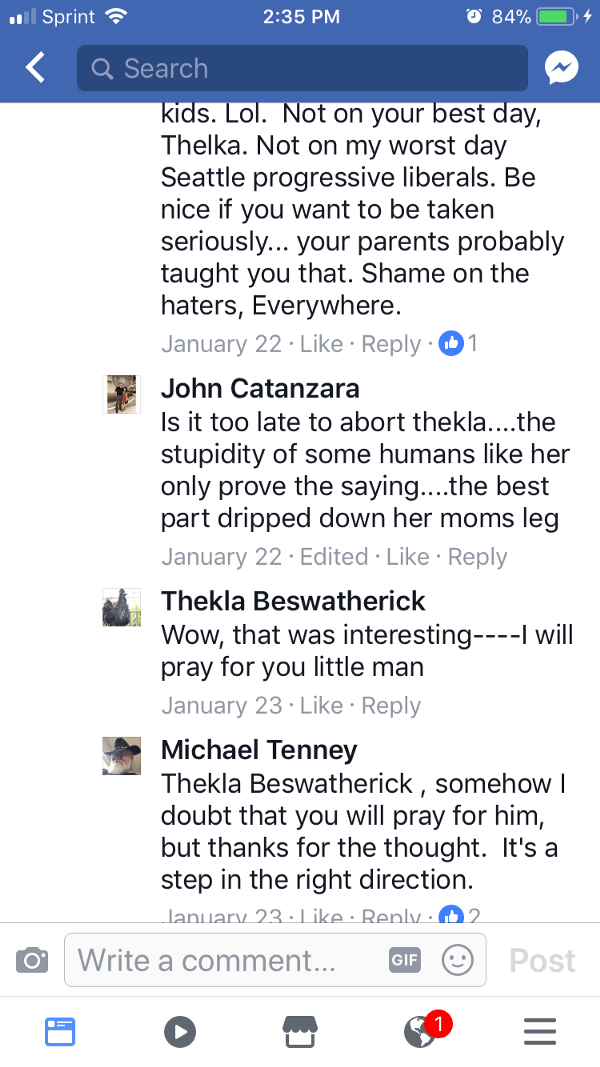
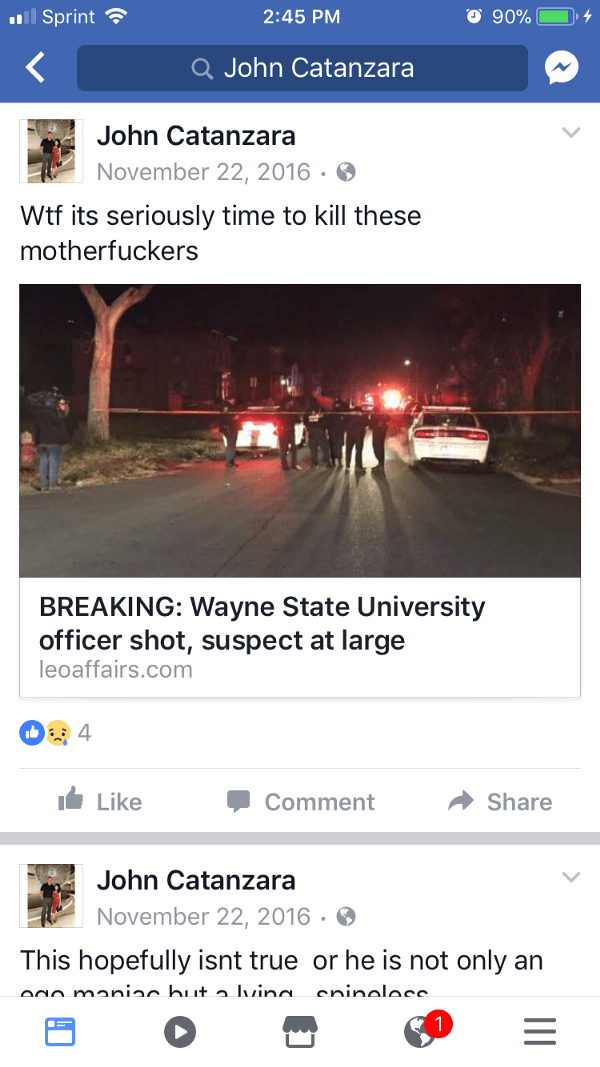




These cases come after the Director of the Michigan State Police offered a half-hearted apology for her own offensive Facebook messages calling NFL protestors “degenerates” and “ingrates.”
Bossier Parish Sheriff’s Office Posts on Social Media Discouraging Students from Taking a Knee During the National Anthem
Public school students have the legal right to stand or sit during the Pledge of Allegiance or National Anthem. This was decided in the courts generations ago, but the Bossier Parish school system is encouraging their principals and coaches to punish students who take a knee or seat during the anthem. To further discourage the students, the local sheriff’s office posted a lengthy message on Facebook doubling down on how they support the school system’s decision. Considering students are taking a knee to protest police brutality and injustice in America, the post from the local sheriff only serves as more intimidation for students to stand — even if they don’t want to. Read the post for yourself below.
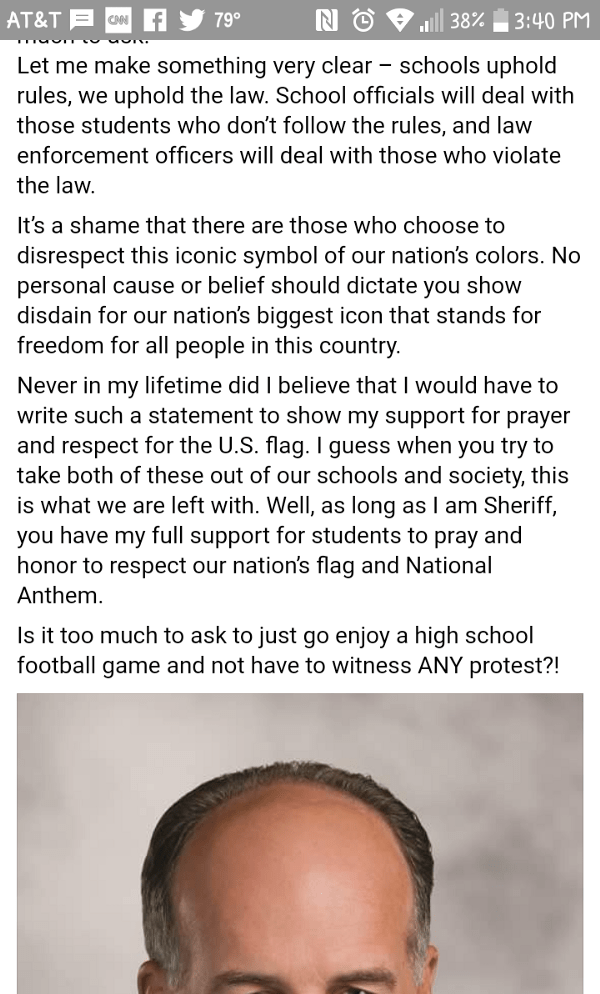
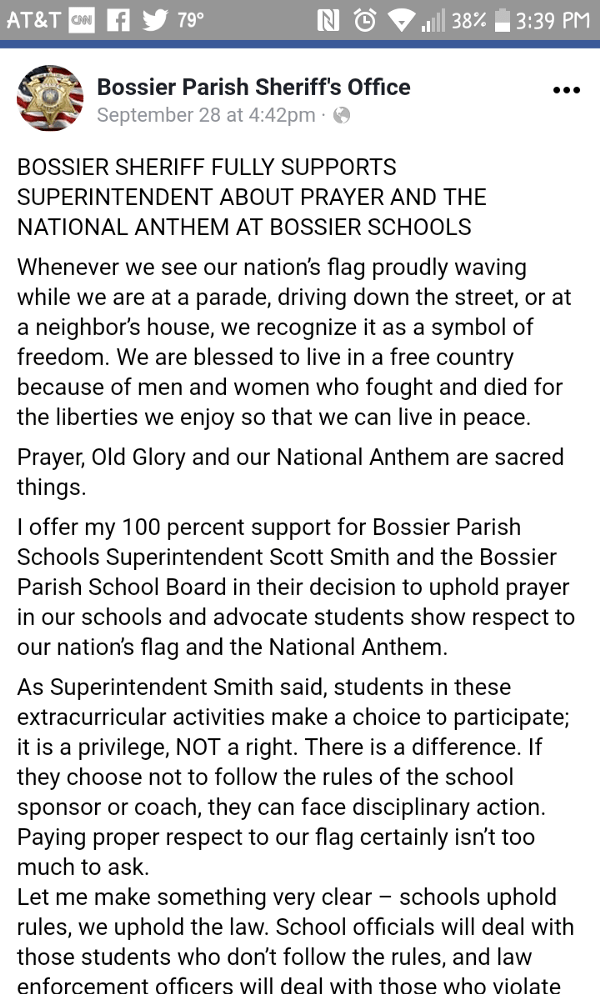
Charlotte, NC District Attorney’s Office Effectively Excludes The Poor From Its Deferred Prosecution Program.
Rahman Bethea is charged with embezzling video equipment from a hotel in Charlotte where he worked. This was his first arrest. Andrew Murray, Charlotte’s elected district attorney, has a “deferred prosecution” program that would allow Bethea to avoid prosecution if he is able to meet certain conditions, including paying restitution. The problem, though, is entrance into the program would require $899 and Bethea only had $100. As the Charlotte Observer’s Michael Gordon wrote, Bethea “says his first-ever arrest cost him his job, his home, his car and his son, who had to join his mother in Pennsylvania because Bethea says he could no longer afford to take care of him. Bethea was homeless for more than a year.” So, to recap, for Bethea, the difference between a felony charge and a complete dismissal was $800 he couldn’t afford. That’s not justice. Fortunately, readers of the Charlotte Observer were moved by Bethea’s story and offered to provide him with the $800. One of those good Samaritans, Paul Byrd, a disabled Vietnam veteran, wrote: “If we live in a society where the lack of $800 can destroy your life, then we’re not much of a society. You can take that Statue of Liberty, throw it out in the Atlantic Ocean and let the Navy use it for target practice. This is not right.”
